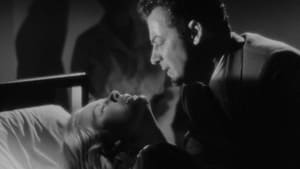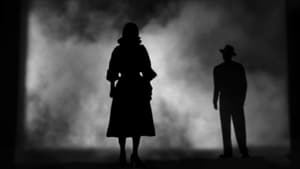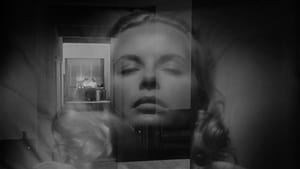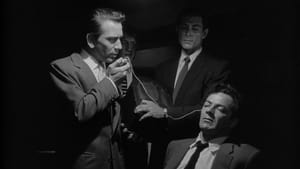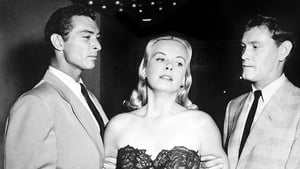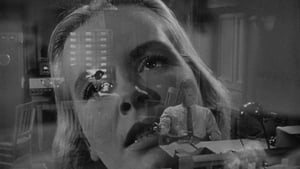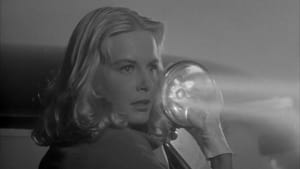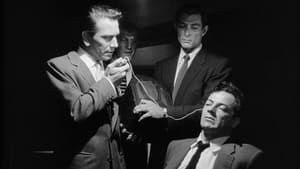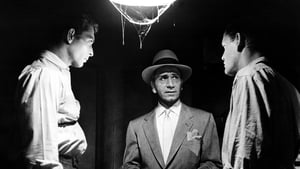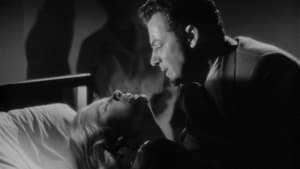Contact: info@alwanfilm.com
Video Sources 0 Views
- Watch trailer
- The Big Combo

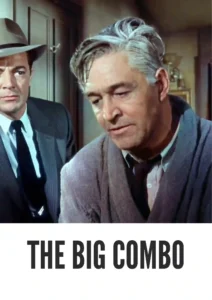
Synopsis
Table of Contents
ToggleUnveiling the Noir Masterpiece: The Big Combo 1955 Colorized – A Cinematic Review of a Timeless Classic

Introduction
In the realm of old movies, The Big Combo 1955 stands as a quintessential example of film noir at its finest. Directed by Joseph H. Lewis, this gritty crime drama captivated audiences upon its release and continues to enthrall viewers with its dark, brooding atmosphere and complex characters. Now, with the release of its early colored version, the film’s impact is poised to reach new heights. In this review, we delve into the significance of The Big Combo 1955’s early colored version and its enduring importance in the world of cinema.
Check The Full Colorized Movies List
Check Our Colorized Movies Trailer Channel
Understanding The Big Combo 1955 Colorized: Director, Cast, and Genre
Directed by Joseph H. Lewis, The Big Combo 1955 represents a masterful blend of crime thriller and film noir. The film boasts a stellar cast, with Cornel Wilde delivering a mesmerizing performance as the determined police detective, Leonard Diamond. Supported by a talented ensemble cast, including Richard Conte and Jean Wallace, The Big Combo 1955 explores the seedy underbelly of organized crime and corruption with unflinching honesty. As a timeless classic of the genre, the film continues to captivate audiences with its suspenseful plot and atmospheric cinematography.
Exploring the World of The Big Combo 1955 Colorized: Plot and Characters
Set against the backdrop of a shadowy underworld, The Big Combo 1955 follows the relentless pursuit of Detective Leonard Diamond as he investigates the enigmatic Mr. Brown, a ruthless crime boss with a penchant for violence and deception. As Diamond delves deeper into Brown’s criminal empire, he uncovers a web of intrigue and betrayal that threatens to consume him. Along the way, he forms a bond with Susan Lowell, a beautiful but troubled woman caught in Brown’s clutches. As tensions escalate and loyalties are tested, Diamond must navigate a treacherous landscape where nothing is as it seems.
The Art of Film Colorization
Film colorization has long been a contentious issue in the world of cinema. By adding color to black and white films, colorization seeks to breathe new life into classic movies and introduce them to new audiences. While some purists argue against colorization, citing concerns about preserving the integrity of the original film, others view it as a way to enhance the viewing experience and make older films more accessible to modern audiences. Regardless of where one stands on the issue, there’s no denying the impact that colorization has had on the world of cinema, with early colored versions of classic films offering a fresh perspective on beloved favorites.
Early Colored Films: A Brief History
The history of early colored films is as rich and varied as the films themselves. From hand-tinted silent movies to digitally colorized classics, filmmakers have long experimented with adding color to black and white films. In the early days of cinema, colorization was a labor-intensive process, with artists painstakingly adding color to each frame by hand. However, with advances in technology, colorization techniques became more sophisticated, allowing for the creation of vibrant and lifelike colors in black and white films. Today, early colored versions of classic films offer viewers a unique opportunity to experience these cinematic treasures in a whole new light.
The Big Combo 1955 and Its Early Colored Version
The decision to release The Big Combo 1955 in a colorized format was met with both anticipation and skepticism. While some welcomed the opportunity to see the film in color, others expressed concern about tampering with a classic. However, the early colored version of The Big Combo 1955 succeeds in enhancing the film’s visual impact while staying true to its original spirit. By carefully selecting colors that complement the film’s noir aesthetic, the colorized version preserves the mood and atmosphere of the original while introducing it to a new generation of viewers.
The Debate Over Film Colorization
The debate over film colorization has raged on for decades, with proponents and detractors arguing over its merits and drawbacks. Supporters of colorization argue that it breathes new life into classic films, making them more visually appealing and accessible to modern audiences. They also point out that colorization can enhance the viewing experience, adding depth and dimension to the film’s visuals. However, opponents of colorization argue that it can detract from the original artistic vision of the filmmaker, altering the intended look and feel of the film. They also express concerns about the potential for colorization to erase the historical record and disrespect the legacy of filmmakers who created their works in black and white.
Examining The Big Combo 1955 as an Early Colored Film
In analyzing The Big Combo 1955 as an early colored film, it’s essential to consider how colorization enhances or detracts from the viewing experience. While purists may prefer the original black and white version, the early colored version offers a fresh perspective on the film’s visuals, adding depth and dimension to the story. By carefully selecting colors that complement the film’s noir aesthetic, the colorized version preserves the mood and atmosphere of the original while introducing it to a new generation of viewers. Ultimately, whether one prefers the black and white or colorized version of The Big Combo 1955 comes down to personal preference, but both versions offer a compelling glimpse into the world of crime and corruption.
Influence and Legacy: The Big Combo 1955 Colorized’s Impact on Cinema
The Big Combo 1955’s impact on cinema cannot be overstated. As a quintessential example of film noir, the film set a new standard for crime thrillers and influenced countless filmmakers in the years to come. Its moody cinematography, complex characters, and suspenseful plot continue to inspire filmmakers to this day, with many citing it as a source of inspiration and admiration. From its stylish direction to its memorable performances, The Big Combo 1955 remains a timeless classic that continues to captivate audiences with its dark, brooding atmosphere.
Director’s Cinematic Legacy: Beyond The Big Combo 1955 Colorized
Joseph H. Lewis’s legacy extends far beyond The Big Combo 1955, encompassing a diverse body of work that spans multiple genres and styles. From gritty crime dramas to atmospheric thrillers, Lewis’s films reflect a keen understanding of the human condition and a fearless commitment to storytelling. His influence on local and international filmmaking is undeniable, with many filmmakers citing him as a source of inspiration and admiration. As a director, Lewis left an indelible mark on the world of cinema, and his work continues to be celebrated by cinephiles around the world.
Themes Explored in The Big Combo 1955 Colorized
The Big Combo 1955 explores a wide range of themes and issues, including the allure of power, the corruption of innocence, and the blurred line between good and evil. Through its nuanced portrayal of characters and situations, the film delves into the dark underbelly of society, shining a light on the moral ambiguity that lurks beneath the surface. Themes of betrayal, redemption, and revenge permeate the story, offering viewers a thought-provoking glimpse into the human condition.
Reception and Controversy Surrounding The Big Combo 1955 Colorized
Upon its release, The Big Combo 1955 received critical acclaim for its stylish direction, atmospheric cinematography, and memorable performances. However, it also sparked controversy for its depiction of violence and its exploration of taboo subjects. Despite this, the film has come to be recognized as a classic of the genre, with its influence extending far beyond its initial release. Today, The Big Combo 1955 is celebrated as a timeless masterpiece that continues to resonate with audiences around the world.
Where to Watch The Big Combo 1955 Colorized Online
For those eager to experience The Big Combo 1955 in its early colored version, the film is available on popular streaming platforms, offering viewers the opportunity to immerse themselves in the world of classic cinema from the comfort of their own homes. Whether seen in its original black and white format or in vibrant color, The Big Combo 1955 continues to captivate audiences with its gripping storytelling and stylish direction.
FAQs About The Big Combo 1955 Colorized
Q: Is The Big Combo 1955 based on a true story?
A: The Big Combo 1955 is a work of fiction, although it draws inspiration from real-life events and societal issues. Director Joseph H. Lewis crafted a compelling narrative that explores the darker aspects of human nature, offering viewers a thought-provoking glimpse into the world of crime and corruption.
Q: What makes The Big Combo 1955 stand out from other films of its time?
A: The Big Combo 1955 stands out for its stylish direction, atmospheric cinematography, and memorable performances. Director Joseph H. Lewis’s keen eye for detail and his ability to create tension and suspense set the film apart from other crime thrillers of its time, making it a timeless classic that continues to resonate with audiences today.
Q: How does the early colored version of The Big Combo 1955 compare to the original black and white version?
A: The early colored version of The Big Combo 1955 offers a fresh perspective on the film’s visuals, adding depth and dimension to the story. By carefully selecting colors that complement the film’s noir aesthetic, the colorized version preserves the mood and atmosphere of the original while introducing it to a new generation of viewers. However, some purists may prefer the original black and white version for its timeless aesthetic and artistic integrity.
Q: What was the critical reception of The Big Combo 1955 upon its release?
A: The Big Combo 1955 received critical acclaim for its stylish direction, atmospheric cinematography, and memorable performances. The film’s early colored version sparked debate among fans and critics, with opinions divided on the merits of colorization. However, its enduring legacy as a cinematic classic remains undisputed.
Q: Who was involved in the production of The Big Combo 1955?
A: The Big Combo 1955 was directed by Joseph H. Lewis, who brought his unique vision and sensibility to the film. The cast included Cornel Wilde in the lead role of Detective Leonard Diamond, alongside Richard Conte and Jean Wallace, whose performances earned widespread acclaim. Together, they created a timeless classic that continues to resonate with audiences around the world.
Conclusion
In conclusion, The Big Combo 1955 stands as a testament to the enduring power of cinema. Whether seen in its original black and white format or in its early colored version, the film continues to captivate audiences with its gripping storytelling, stylish direction, and memorable performances. As a timeless classic of the film noir genre, The Big Combo 1955 remains a must-see for cinephiles and casual viewers alike, offering a glimpse into the dark, shadowy world of crime and corruption.
